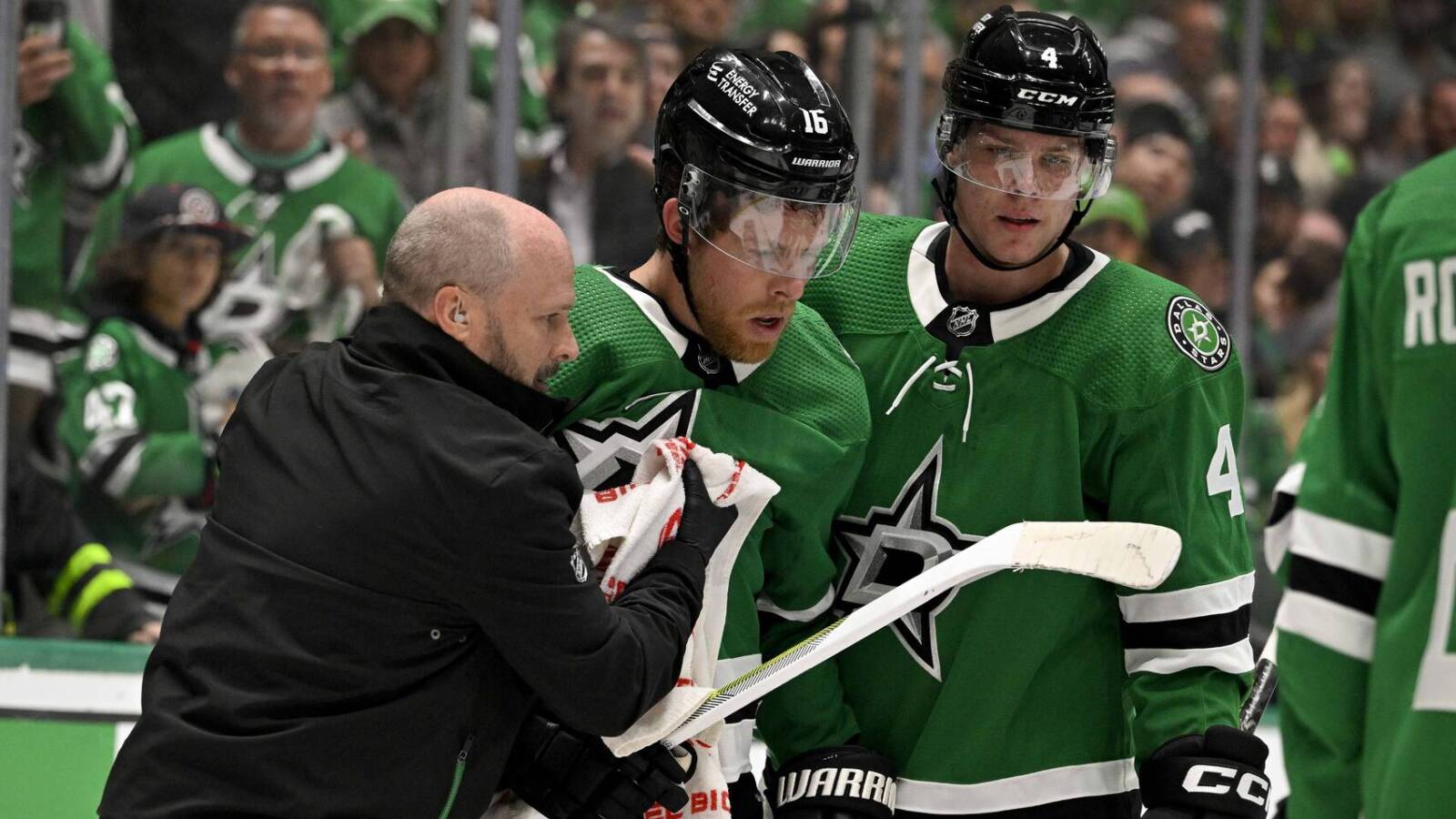Want blood for Matt Dumba’s hit on Joe Pavelski? Here’s why you won’t get it
Face it: Pavelski is one of the more likable players in the sport, an important leader for the two franchises on which he’s played 1,418 NHL games between the regular season and playoffs. He’s a classy leader, king of the net-front deflection, always well liked by his teammates. When we witness him suffer a horrific injury, we don’t like it. Nor do his teammates. Our knee-jerk reaction might be to hate what we see in the moment and declare it dirty. It was no surprise to see the Stars, led by Max Domi, swarming Dumba, thirsty for vengeance, in the moments after the collision.
It’s simply difficult to separate the emotion from the truth at times when we see a beloved player suffer a scary brain injury. Sometimes the officials even get caught up in that. Remember the Cody Eakin cross-check on Pavelski in the 2019 playoffs? The officials saw red in the moment and handed Eakin a five-minute major for cross-checking after Pavelski went down with a nasty head injury. The penalty led to four Sharks power-play goals, and San Jose rallied from a 3-0 deficit to win that Game 7. The officials ended up issuing an apology for the blown call, and the rulebook ended up changing as a result, introducing the ability to review a major penalty and reduce it to a minor. This season, it was updated to allow officials to nullify a major entirely if warranted.
It was eerily ironic to see the “Pavelski rule” work against Pavelski’s team four years later on Monday night after Dumba knocked Pavelski cold with a devastating hit behind Minnesota’s net in the third period. The officials called a major, reviewed it and knocked it back to a minor. Only this time, were they wrong for reducing the call? Should Dumba be receiving supplemental discipline for what he did?
The punishment as it stands right now is a reduced call of two minutes for roughing. There’s no denying that Dumba hurled himself into Pavelski with violent abandon. Dumba has always been the type to leave his post and chase monster hits. There’s a reason he was compared to Dion Phaneuf coming up with the WHL’s Red Deer Rebels.
But how predatory was the play? It wasn’t a hit to the head; Dumba caught Pavelski directly in the shoulder, causing Pavelski’s own stick to strike himself in the head.
It wasn’t a charge. Remember, when assessing whether a player leaves his feet, you have to watch his skates before the contract. Dumba’s feet stayed on the ice up to the moment of impact. If the skates launch up as a result of the contact? That’s legal.
In this case, the primary question we have to ask when assessing if the hit is worthy of supplemental discipline: Was it late? If the Stars have a case with which to prosecute Dumba, that’s it. The blow certainly wasn’t bang-bang. Pavelski was done playing the puck by the time Dumba got to him, but the Department of Player Safety has an acceptable threshold in which a hit can be delivered after an opponent is done playing the puck: between 0.5 and 0.6 seconds. The belief is that the Dumba hit, while pretty borderline, falls in the acceptable window.
And that’s it. No hit to the head, no charge, no interference, no suspension coming for Dumba. No one likes to see a player suffer such an ugly injury as a result of any hit, but the truth is as long as hitting is legal, we’re going to see injuries from time to time even on relatively clean hits. We don’t have to love what Dumba did to Pavelski, but that doesn’t mean it was illegal.
For all the latest Sports News Click Here

